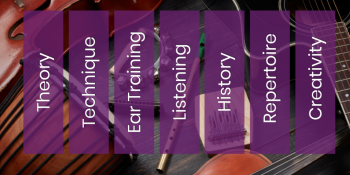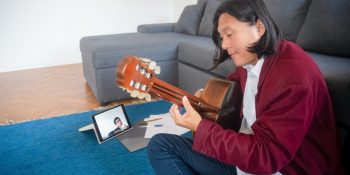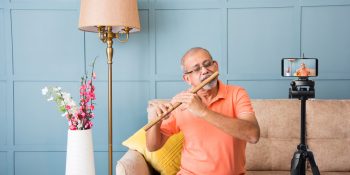
How to keep a session interesting
Remember when you first learnt to make sentences from words? I don’t think so but look how fluently you can form sentences now. Similarly, in music you keep your students committed to their lessons and they will soon be able to create melodies from their instrument. But sometimes it is challenging to stay patient, this is true for both you and your student. Their ability to grasp your lessons will vary according to the student, however it is important for you to understand and give different time expectations for your student to learn.
Each individual has their own way of learning, few really do well with visual medium while some understand it better in literary written format. Also, some will have a knack for grasping a concept with their listening skills. So there are a lot of different ways one learns, so as a mentor, try to find the method that works with your student.
Also there are so many different challenges in the modern day and age, with the evolution of digital technology in our daily lives and ever growing short span of attention that people have nowadays, it is important that you plan your lessons in such a way that they can keep their attention in a given session. Especially with kids, it can be difficult to keep them concentrated on a lesson for a long time, so find ways to keep it fresh every ten minutes or so. Here are some suggestions to keep the session fresh, flowing and informative.
Providing exercises that are not on their instrument: You can give them a break from the instrument within the session by integrating clapping exercises and other exercises that do not include playing with their instrument. Remember those exercises should still benefit them, like clapping exercises can help build a sense of groove in them or an ear training exercise that will help build their auditory skills. You can come up with your own exercises and fun theory games that will break the monotony of technical exercises on their instrument.
Conversation about music : Communication is one of the most important parts of a music session, you should seem approachable by the student. This way, it keeps discussion transparent and one feels comfortable to resolve any doubts, queries on concepts, lessons and techniques on the instrument. You can have a conversation with your student about their preference in music and discuss the different era of music you have come across. You can exchange opinions and ideas on any recent releases and inform them about certain artists or their history or an interesting trivia. These few conversations will make the student curious about the different aspects of learning music which will then motivate them to learn their instrument and also make them look forward to their next class for similar information.
Listening to a song : While you are building their repertoire, your students might not have much experience to play with the song or a backing track. Expose them to new ways of learning a song. Ask them to listen to the song they are learning, guide them how each part they are learning falls into the music and motivate them to do their exercises so that they can play their technical lessons with the song itself. When they achieve that, they really feel inspired and stay motivated to learn more songs and build their repertoire themselves. Refer them songs but also take their choices so that they can look forward to learning their favourite songs.
While all these will help break the monotony of a session, it is important to encourage them to do their technical exercise on their instrument and still give good time practicing those lessons. While you can integrate the above suggestions in your class, you still have to emphasise the importance of music theory and technical exercise in learning the instrument.



 Version
2.0
Version
2.0